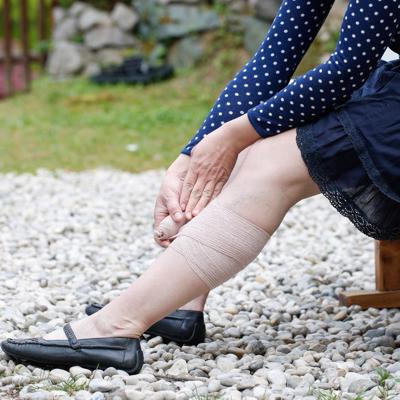On May 17, 2019, the European Medicines Agency (EMA) announced an important recommendation concerning Xeljanz (tofacitinib). Due to concerns about blood clots in the lungs, doctors shouldn’t prescribe the twice daily 10 mg dose to patients who:
- have a history of blood clots or clotting disorders
- have had heart failure or cancer
- are taking combined hormonal contraceptives or undergoing hormone replacement therapy
An ongoing study indicates an increased risk of blood clots in the lungs, or pulmonary embolism, for Xeljanz patients. Several cases of pulmonary embolism and even death have been reported from the study. The EMA has pledged to review all available evidence and provide updated guidance when the study concludes.
Xeljanz and Xeljanz XR are medications manufactured by Pfizer. It is used to treat adults with the following conditions:
- Rheumatoid arthritis
- Psoriatic arthritis
- Ulcerative colitis
Patients who’ve suffered adverse effects from Xeljanz or Xeljanz XR may experience pulmonary embolism (PE) or deep vein thrombosis (DVT). DVT is a blood clot that occurs in the deep veins of the body, usually in the legs. Some patients have died due to DVT or PE.

Symptoms of PE include the following:
- Shortness of breath
- Sudden difficulty breathing
- Chest pain
- Back pain
- Severe sweating
- Coughing up blood
- Clammy or bluish skin
DV symptoms include the following:
- Swelling in the affected leg
- Discoloration in the leg
- Pain in the leg resembling a cramp
- Warmth in the area affected
Patients who are experiencing any of these symptoms should contact their doctor immediately. However, patients are not advised to change their dosage or stop using Xeljanz without first consulting a physician. Doing so could cause further damage or complications.
Xeljanz was approved by the U.S. Food and Drug Administration in 2012 for adults with moderate to severe rheumatoid arthritis. However, the FDA only approved a 5 mg dosage, and many patients are taking twice as much. The 10 mg twice daily dosage was only approved for patients who have been diagnosed with ulcerative colitis.
After the FDA approved Xeljanz, it required a post-marketing safety study. The study indicated a heightened risk of adverse reactions in patients taking the higher dosage of the drug. The study’s Data Safety Monitoring Board recommended moving patients to the lower dose, which Pfizer announced on February 19, 2019. On February 25, 2019, the FDA announced increased risks of pulmonary embolism and death in 10 mg twice daily patients. The announcement covered both Xeljanz and Xeljanz XR.
The European experience has some interesting history as well. In 2013, regulators in Europe refused to approve the drug to treat rheumatoid arthritis. Studies indicated that while the 5 mg dosage was relatively safe, they couldn’t recommend the higher 10 mg dosage.
Currently, there are no recalls for Xeljanz or Xeljanz XR. However, the medication could be defective or pose health risks to patients taking it. Lawsuit claims are ongoing and will likely expand in the near future. Affected patients are encouraged to contact an experienced attorney regarding their conditions. If Pfizer failed to adequately warn patients of the dangers of the drug, they may be liable.
Patients who have suffered health problems from taking Xeljanz may be entitled to compensation, including for:
- Past and future medical bills
- Past and future lost wages
- Disability
- Emotional and mental distress
Surviving family members of patients who have died because of the medication could be eligible for damages as well. This could include compensation for funeral expenses, wrongful death, lost financial support, and the pain of losing a loved one.
The Attorneys at Gacovino, Lake & Associates Can Help
Major manufacturers such as Pfizer are formidable opponents in any lawsuit. Products liability cases are complicated matters and require experienced lawyers who are knowledgeable of the relevant issues. Plaintiffs have to prove the responsible party knew of the safety risks but failed to provide sufficient warnings. If you or someone you love has been harmed by Xeljanz or Xeljanz XR, don’t delay. Call our team today to get started.
